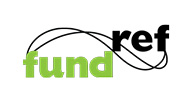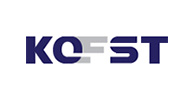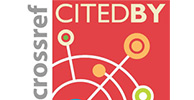The widespread use of pesticides to control crop pests has raised concerns due to environmental pollution and ecosystem disruptions. Therefore, research in this area is increasingly focused on exploring alternative pesticides with broad-spectrum insecticidal effects and minimal environmental impact (Saxena, 1989). Biochemical pesticides derived from plant extracts have emerged as effective solutions, serving not only as insecticides but also as insect repellents and feeding deterrents (Schmutterer, 1985). Importantly, these plant-derived products require lower development investments, in terms of both time and cost, compared to chemical pesticides (Georghious and Saito, 1983). Furthermore, plant-based pesticides (Wink, 1993;2015) exhibit reduced toxicity to mammals, including humans, compared to their synthetic counterparts (Arnason et al., 1989). They also demonstrate lower non-target effects (Khetrapal and Vodwal, 2016), which has spurred interest in their potential for offering environmentally friendly pest control (Cantrell et al., 2012).
Currently, agricultural pest management successfully employs several plant-derived insecticides, such as pyrethrins from pyrethrum (Chrysanthemum cinerariifolium) (Elliott et al., 1978), azadirachtin from neem trees (Azadirachta indica), terpenoids from chinaberry trees (Melia azedarach) (Dubey et al., 2010), and matrine from the roots of Sophora flavescens (Saito et al., 1990). Among these, pyrethrins are extracted from the flowers of perennials in the Asteraceae family, commonly known as pyrethrums. The pyrethrins constitute two-thirds of the global market for plant-extracted insecticides and are registered worldwide (Isman, 2006). The cultivation of pyrethrums is feasible in many countries. Therefore, while Kenya has historically been a leading producer of pyrethrins, Australia currently dominates the global market, accounting for half of the world’s supply (Lybrand et al., 2020;Pilkington et al., 2023).
Tanacetum cinerariifolium var. Dalmatian, a known producer of pyrethrins, features a daisy-like flower that form at the end of the stems, adorned with 18 - 22 white ray florets surrounding a yellow disc (Kamau et al., 2019). The flower extract, a pale-yellow color oil, contains six esters (pyrethrin I, pyrethrin II, cinerin I, cinerin II, jasmolin I, and jasmolin II). Among these, pyrethrins I and II are the most abundant and are crucial for the insecticidal activity of the extract (Casida, 1980;Grdiša et al., 2013;Isman, 2006). Pyrethrin’s mode of action involves targeting the sodium channels of the insect’s nervous systems, resulting in rapid knockdown, heightened activity, and convulsions (Lybrand et al., 2020). The synergistic effect of pyrethrins I and II proves effective against a broad spectrum of insect species (Grdiša et al., 2009), with pyrethrin I acting swiftly (within minutes) and pyrethrin II delivering a potent knockdown effect (Winney, 1976).
In South Korea, 52% of organic agricultural materials used for pest management are derived from plant extracts. However, 98% of the raw materials for botanical insecticides are imported (Imported Raw Materials and Usage of Organic Agricultural Materials for Pest Management, National Institute of Agricultural Sciences, 2022). This paper focuses on the production of botanical pesticides using plants cultivated in South Korea. Currently, there are few reports on the total pyrethrin content of Korean-grown pyrethrum varieties (Kim et al., 2010), and existing information lacks details on extraction methods and control efficacy against major plant pests. Our previous study demonstrated that imported pyrethrin mixtures exhibited superior insecticidal activity, even at lower doses, against green peach aphids compared to other imported botanical insecticides like rotenone and matrine (Cho et al., 2023a).
In the present study, we investigated the use of ethanol for solvent extraction of pyrethrin from pyrethrum flowers cultivated domestically in South Korea. We evaluated the efficacy of ethanol at different concentrations and extraction times. Solvent extraction of dry powder is a simple and effective method for many natural ingredients (Ćujić et al., 2016;Cvetanović et al., 2020;Monton et al., 2019). This method can be conducted at room temperature (RT, 25°C), which is crucial for preserving heat-sensitive compounds (Uysal et al., 2019). The extracts were assessed for stability and effectiveness against plant pests, specifically root-knot nematodes, green peach aphids, and diamondback moths.
Materials and Methods
Pyrethrum plants and cultivation
Two different pyrethrum varieties were utilized in this study. One variety, Chrysanthemum sp. Gyetong 0721 (originating from France) (Kim et al., 2010), was previously collected and maintained by the Jeonnam Agricultural Research and Extension Services. The seeds of Gyetong 0721 were harvested and stored for one year at 4°C. The second pyrethrum seed source was T. cinerariifolium var. Dalmatian, cultivated by an eco-friendly farmer in Gwandeok-dong, Dongnam-gu, Cheonan, Chungnam, Korea.
Seeds of both varieties were soaked in sterile water for 24 h. Subsequently, they were transferred to seed trays containing sterile nursery soil mixture (Tobaigi, SungHwa Inc., Korea), and covered with a thin layer of the same soil mix. Seedlings were grown in a greenhouse maintained at 23 ± 2°C during the day and 13°C at night, with a relative humidity of 50 - 60%. Soil moisture was maintained by regular watering. After approximately six weeks, when three true leaves had emerged, the seedlings were transplanted to pots and allowed to grow for an additional two months before being transferred to field soil.
Plant transplantation and field cultivation
Seedlings of the two pyrethrum varieties were transplanted into the test field of the Jeonnam Agricultural Research and Extension Services, Naju (Latitude 35.02257 N, Longitude 126.8280 E). Three weeks before transplanting, organic compost (Vitality, Hyunnong Co., Jangseong-gun, Korea) was applied at a rate of 1,000 kg/10a to enrich the field soil. Before transplanting, soil samples were collected from three points in the field, air-dried in the shade, finely ground using a rubber mallet, and passed through a 2 mm sieve for analysis. Soil properties, including pH, organic matter content, available phosphorus, exchangeable K·Ca·Mg levels, cation exchange capacity (CEC), and electrical conductivity (EC), were determined following the soil chemical analysis methods specified by the Rural Development Administration (RDA). The results are presented in Table 1.
On April 13, 2022, 100 seedlings of each of the two varieties were transplanted with a spacing of 30 - 50 cm between plants and 35 - 40 cm between rows (i.e., 7 - 9 plants per square meter). Cultivation practices recommended by the RDA (Wanju, Korea) were followed throughout the cultivation period. Flowering occurred between late June and late August, and flowers of both varieties were harvested twice a month. Harvested Dalmatian pyrethrum flowers were classified into three different stages (Table 2) following the procedure outlined by Grdiša et al. (2022). All harvested flowers were dried at 40°C for 48 h using a commercial dryer (SW-900, Gaon Science, Korea) to achieve a final moisture content of 10 - 15%. The dried flowers were stored in dry and dark conditions and subsequently powdered using a powder grinder (SMX-C4000WK, Shinil Electronics, Korea). The powdered samples were stored in a 4°C freezer in light-protected containers.
Extraction and comparison of pyrethrin contents of dried flowers
Different procedures for extraction were implemented, depending on the study objective. Flowers at the flower maturity index 2 (FMI 2) stage (Table 2) were used for comparing the pyrethrin contents between the two varieties. All subsequent investigations utilized flowers from Dalmatian pyrethrum. To determine the effect of flower maturation, dried flower powders were prepared from flowers harvested at three defined maturation stages: 1, 2, and 3 (Table 2). The dried flower powders (100 g) were agitated (150 rpm) at 40°C for 3 h in 500 mL of 70% ethanol.
To determine optimal ethanol concentrations and extraction temperatures, powders of Dalmatian pyrethrum flowers harvested at the FMI 2 stage were used. Specifically, 100 g samples of the dried powder were agitated at 150 rpm in 500 mL of 25, 50, 70, or 95% ethanol at 25 or 40°C for durations of 1, 2, or 4 wks. All extractions were conducted in sealed brown glass bottles. Each extract was filtered through Whatman No. 1 Filter paper (Sigma-Aldrich, MO, USA), and the filtrates were stored in brown vial containers at 4°C until chemical analysis. Three independent experiments were conducted, with three replicates per experiment.
Liquid chromatography-tandem mass spectrometry (LC-MS/MS) analysis
The composition and concentrations of six pyrethrin structures in the ethanol extracts of pyrethrum flowers were determined using LC-MS/MS analyses, as described previously (Cho et al., 2023a). Briefly, the extracts were filtered through 0.2 μm PTFE filters (Whatman) and stored at 4°C in lightprotected containers. Methanol was used to dilute the extracts for analysis using an AB SCIEX Qtrap4500 QTRAP coupled with a Waters AQUITY UPLC H-Class system (Framingham, MA, USA). Chromatographic separation was achieved using a Cardenza CD-C18 UP column (2.0 × 150 mm, 3.7 μm particle size) (Imtakt Com., Portland, OR, USA) with a gradient of solvent A (5 mM ammonium acetate + 0.1% (v/v) formic acid in water) and B (5 mM ammonium acetate + 0.1% (v/v) formic acid in methanol). The injection volume was 2 μL, the flow rate was 0.2 mL/min, and gradient elution was performed for 7 min. The compounds were analyzed by multiple reaction monitoring (MRM) after electrospray ionization (ESI) in positive mode. The pyrethrin components in the samples were identified by comparing the retention times with those of authentic pyrethrin compounds (pyrethrin I, pyrethrin II, cinerin I, cinerin II, jasmolin I, and jasmolin II) purchased from AccuStandard (New Haven, CT, USA). A mixture of the six isomers of pyrethrin was serially diluted and injected as standards. The areas under the peaks of extracts and authentic standards were used to deduce both composition and concentrations. Pyrethrin content in the sample was expressed as ppm in the extracts or mg per gram of the flower sample. Each sample was analyzed in triplicate.
Insect bioassay
Insect bioassays were conducted using optimized standard methods for green peach aphids (Myzus persicae) (Cho et al., 2023a), root-knot nematodes (Meloidogyne hapla) (Kang et al., 2018;Lee et al., 2011;Nam et al., 2018), and diamondback moths (Plutella xylostella) (Ahmad et al., 2019). The 70% ethanol extracts of Dalmatian pyrethrum flowers at the FMI 2 stage, prepared by agitating at 25°C for 4 wks, were used to test insecticidal activity.
The larvae of the cabbage diamondback moth (P. xylostella L) used in this study were reared in the Plant Pathology Laboratory of the Department of Applied Biology at Chonnam National University. The larvae were reared in cylindrical pots (9 cm diameter and 8 cm height; XPLANT, Korea) containing 120 g of sterilized soil (Bio Soil No.1, Hungnong, Korea) and vermiculite (Ecolite Vermiculite, Homansan-eob, Korea) mixed in a 7:3 ratio. The growth conditions were as follows: 25.7 ± 1.9°C temperature, 48.3 ± 9.7% relative humidity, 16:8 (light: dark) photoperiod, 2,000 lux light intensity, and 80 μmol photons/m - 2s - 1 photon flux density. Cabbage seeds (Singsingeosgal- i, Kiban Com., Korea) were germinated, and seedlings were grown to the 4 - 5 leaf stage before being transferred to insect rearing cages (W400 × D400 × H40 mm, Shinill Science Inc., Korea). Plants were infested with adult moths using an aspirator (Shinill Science Inc., Korea) to allow egg laying. The third instar larvae were used for the bioassays.
A leaf-dip assay was used to evaluate the toxicity of the pyrethrum extracts (Bandani and Butt, 1999). Briefly, leaf discs (2.5 cm diameter) were excised from the cabbage leaves, submerged for 10 s in the diluted botanical extracts or control solutions (70% ethanol diluted to the same volume), and air-dried for 1 h at RT. Four leaf discs were placed onto water agar (0.7%, 1 cm depth) in Petri dishes (9 cm diameter, 2 cm depth). Five third instar larvae of P. xylostella were placed alongside the leaf discs at the center of the Petri dish. Each treatment was replicated sixfold, and the whole experiment was repeated twice. Larval mortality was recorded over a 72 h period.
An optimized standard method for green peach aphids (M. persicae) using an agar-based method (Cho et al., 2023b) was used to assess the insecticidal efficacy of the botanical extracts. Briefly, tobacco leaves resting on 0.8% sterile water agar were infested with 20 third/fourth stage nymphs using a soft brush. Surfaces were sprayed with 1 mL of sterile water (for control) or the diluted botanical samples. Insect breeding dishes were incubated for 5 d under 40 W fluorescent lights (70 μmol photons/m-2 s-1) with a 14:10 h light:dark cycle at 21 ± 2°C. Mortality was calculated using the following formula: (B - A/B) × 100, where A is the total number of aphids before treatment, and B is the number of live aphids after treatment. The viability of nymphs/adults was assessed under a stereoscopic microscope (Model C-LEDS, Nikon Imaging Japan Inc., Japan), using a fine brush to prod them at defined times. Insects that did not respond were classified as dead. The dosage of the extracts used in the bioassays for each insect was as follows: For green peach aphids (M. persicae) and diamondback moths (P. xylostella), Dalmatian pyrethrum extracts were diluted with sterile water to concentrations of 12.5, 25, 100, and 200 ppm. The insecticidal activity was assessed every 24 h over a period of 3 d. The rearing dishes were kept in an incubation room (under 40W fluorescent lights with a 14-h light/10-h dark cycle, at 21 ± 2°C and 60% relative humidity), and the insecticidal efficacy was observed for 3 d.
The nematicidal effect of the pyrethrum extract was investigated on juveniles of the root-knot nematode, M. hapla, as described previously (Kang et al., 2018;Lee et al., 2011;Nam et al., 2018). Briefly, the second juvenile stage (J2) of M. hapla was obtained from naturally infested soil (at depths of 0 - 30 cm) at the Fruit Experimental Station (Haenam, Jeonnam, Korea), using the Sieve and Baermann funnel technique. Suspensions (5 mL) of juveniles were allowed to settle in 15-mL tubes for 30 min. Subsequently, 4 mL of the top layer was removed to obtain a suspension of 120 ± 10 organisms/mL. For this bioassay with the root-knot nematodes, Dalmatian pyrethrum extracts were further to low concentrations of 0.098, 0.195, 0.391, 0.781, 1.563, 3.125, and 6.25 ppm. Treatments with water were used as the controls. After 3 d of exposure of the nematode larvae to the defined concentrations of the pyrethrum extracts, their effects on J2 mortality were evaluated under a low-power microscope (Carl Zeiss Discovery V12, Germany). As described previously (Lee et al., 2011), the nematodes that showed no movement when touched with a sharp tip were considered to have been killed by the extract components. Three independent experiments were conducted, with three replicates per experiment. The lethal concentration was calculated based on data collected at 3 d exposure using the complementary log-log model (Finney and Stevens, 1948).
Data analysis
Statistical analysis was performed using GraphPad Prism software (version 10, GraphPad Prism, Boston, MA, USA). Normal distribution of the data was analyzed using the Shapiro- Wilk test. Unpaired Student’s t-tests and one-way analysis of variance (ANOVA) with post hoc multiple comparison tests (Turkey’s HSD test) were used to determine statistical differences between groups. Univariate analyses of variance were conducted to analyze the data related to the six pyrethrin components, total pyrethrin content, and the pyrethrin I/II ratio. Pearson correlation analysis was conducted to analyze the data related to the six pyrethrin components and total pyrethrin content under various extraction conditions. Statistical significance was set at P < 0.05. Significance levels are indicated as follows: *P < 0.05, ** P < 0.01, ***P < 0.001, and ****P < 0.0001. Each experiment was performed in triplicate, and all values are reported as mean ± standard deviation.
Results and Discussion
Pyrethrin contents in the two Korean-grown pyrethrum varieties
Analysis of the total pyrethrins in the extracts from flowers at the FMI stage showed that Gyetong contained 435 ppm pyrethrin/100 g, while the Dalmatian variety contained 640 ppm/100 g. Therefore, among the two studied varieties, the Dalmatian variety exhibited a statistically higher yield (P < 0.001) of total pyrethrin. This result aligns with previous studies involving this variety (Grdiša et al., 2009, 2013, 2020, 2022;Jeran et al., 2021). Consequently, only botanical extracts from the pyrethrum variety Dalmatian were used for further experiments.
Pyrethrin contents in extracts of different flower maturity stages
Analysis of extracts from the Dalmatian variety revealed that pyrethrins I and II accounted for 92% of the total content, with lower amounts of cinerins I and II (5%) and jasmolins I and II (3%). Similar findings were reported by other research groups (Grdiša et al., 2022;Jeran et al., 2021). Specifically, pyrethrin I was predominant (51%), followed by pyrethrin II (30%), cinerin I (6%), cinerin II (5%), jasmolin I (4%), and jasmolin II (3%) (Grdiša et al., 2013). These percentages in the pyrethrin extracts aligned with previous reports (Chen and Casida, 1969;Crombie and Elliott, 1961;Elliott et al., 1978;Kasaj et al., 1999).
Pyrethrin content varied with flower maturity (FM) stages, measuring 1,009 ppm/100 g at the FM stage 3, 1,039 ppm/100 g at the FM stage 2, and 852 ppm/100 g at the FM stage 1. Because of the different types of actions of pyrethrins I and II against insect species, the pyrethrin I/II ratio is important for determining the quality of pyrethrum (Grdiša et al., 2013). Our findings were that pyrethin I/II ratio was highest for flowers extracted at the FM stage 2 (Fig. 1). These findings align with previous studies and underscore the importance of the timing of flower harvest for maximizing yields. The observed range of the pyrethrin I/II ratio in ethanol extracts (0.9 - 1.3) exceeded the values reported previously (Maciver, 1995). Pyrethrins I and II synergistically exhibit potent effects against a broad spectrum of insects (Casida and Quistda, 1995), and while pyrethrin I alone exhibits lethal effects, pyrethrin II offers a faster knockdown effect (Sawicki and Thain, 1962). However, insects can easily metabolize pyrethrin II and recover within a few hours (Winney, 1976).
Pyrethrin extraction efficiency using different ethanol concentrations
Extraction with different concentrations of ethanol (25, 50, 70, and 95%) demonstrated that the highest amount of pyrethrin was extracted with 95% ethanol (Fig. 2). Regression analysis revealed a strong correlation (R2 = 0.9008) between ethanol concentration and pyrethrin extraction efficiency (Fig. 2A), represented by the linear equation y = 95.16x - 2411. The heatmap analysis also illustrated that higher ethanol concentrations corresponded to increased extraction of all pyrethrin isomers (Fig. 2B).
The pyrethrin extraction from Dalmatian flowers was significantly higher at 40°C compared to 25°C (Fig. 3). Regression analysis showed a direct linear relationship between pyrethrin content and incubation period in 95 % ethanol, with Spearman’s correlation coefficients (r) of 0.9151 for 40°C and 0.9701 for 25°C (P < 0.0001). Unpaired Student’s t-tests revealed that there was no significant difference in the pyrethrin content extracted after 1 wk of incubation (P = 0.1365). However, significantly higher amounts of pyrethrin were obtained when extracted at 40 °C compared to 25°C after 2 and 4 wks of incubation (Fig. 3B). Overall, the results indicated that higher temperatures and longer incubation periods enhance pyrethrin extraction efficiency.
Lethal effects of Korean pyrethrum extracts on insects and nematodes
The ethanol extracts prepared using Korean-grown Dalmatian pyrethrum flowers at the FM stage 2 exhibited potent insecticidal effects against major plant pests: the green peach aphids (LC50 = 34 ppm), the cabbage diamondback moth larvae (LC50 = 68 ppm), and the juveniles of root-knot nematode (LC50 = 0.1 ppm) (Table 3). Our previous study (Cho et al., 2023a) indicated that imported pyrethrin mixtures were highly effective against the green peach aphids (LC50 = 18 ppm, LC90 = 54 ppm). Thus, our freshly extracted pyrethrin extracts from Dalmatian flowers cultivated in Korea had slightly higher LC values compared to imported pyrethrin extracts. On a mass basis, our ethanol extracts from Korean-grown plants exhibited efficacies comparable to those reported in established literature (Grdiša et al., 2013, 2022;Jeran et al., 2021).
The research focused on evaluating the insecticidal activity of pyrethrum flowers in Korea on other insecticidal targets is limited. Studies on Korean pyrethrum (Kim et al., 2009;2010) found that 95% ethanol-mixed emulsifier extracts achieved 64% efficacy against two-spotted mites (Tetranychus urticae). However, these extracts were not effective against cotton aphids (Aphis gossypii).
Our study addressed significant gaps in existing knowledge by providing detailed insights into the pyrethrin concentrations, and insecticidal/nematocidal efficacy of pyrethrum flowers grown in Korea. We demonstrate that effective preparations were obtained using only 95% ethanol extraction of full bloom flowers for 4 wks from Dalmatian pyrethrum plants cultivated in Korea. To our knowledge, this is the first comprehensive report on the insecticidal properties of Dalmatian pyrethrum grown in Korea. These extracts were potent pesticides against the green peach aphid. the larvae of cabbage diamondback moths and the juveniles of root-knot nematodes. These findings suggest that local cultivation of T. cinerariifolium var. Dalmatian variety, extraction and the application of these extracts to Korean crops could potentially diminish dependence on imports and promote sustainable pest management practices. When extracting and using pyrethrum in actual organic farms, it is effective to cultivate the T. cinerariifolium var. Dalmatian variety, harvest the flowers at full bloom, and extract them in 95% ethanol for 4 weeks before use. Overall, our study highlights the promising potential of Dalmatian pyrethrum cultivated in Korea as a source of effective botanical insecticides.













 KSAE
KSAE





